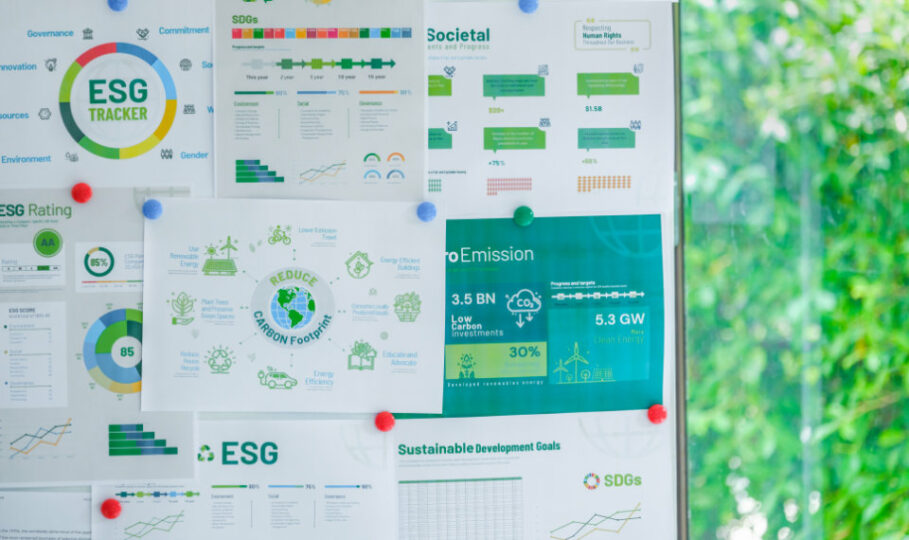The use of software to manage fixed assets digitally has gained popularity among various sectors, including event organisers, in recent years. With technological advancements, businesses now have the opportunity to streamline their operations and enhance efficiency.
However, it’s essential to consider the broader impact of this transition on sustainability. In this article, we will delve into the eco-friendly advantages of digitalising fixed asset management through software, focusing on how it can particularly benefit the business of event organisers by reducing environmental impact and improving operational workflows.
Table of Contents
Reduction in Paper Usage
One of the benefits of adopting software for managing fixed assets is the decrease in paper consumption. Traditional manual processes often involve a significant amount of paperwork, such as purchase orders, receipts, and asset transfer forms. This leads to printing and paper waste.
By embracing fixed assets management software, companies can reduce their reliance on paper. All documentation can be stored digitally and accessed easily with a few clicks. This not only minimises the need for physical storage space but also helps preserve forest resources and reduces air pollutants generated during paper production.
Lowering Energy Consumption
Another benefit of digitised fixed asset management for event organisers is the significant decrease in energy consumption compared to manual processes. Traditional asset management involves numerous energy-intensive tasks such as printing documents, faxing papers, and distributing physical copies—activities that are not only cumbersome but also environmentally costly.
With software-driven asset management systems, all information is centralised in one digital platform. Authorised personnel can access needed files from anywhere at any time, which greatly enhances efficiency for event organisers.
This digital approach eliminates the need for physical document handling such as hunting down missing files or waiting for signatures on paper documents, thus saving energy.
As a result, event organisers can streamline their operations and reduce their environmental impact, contributing to more sustainable event management.

Reducing Carbon Footprint
Traditional asset management often overlooks the carbon emissions associated with transportation. The routine movement of files for review or approval leads to vehicle emissions, which contribute to air pollution. However, by implementing asset management systems that utilise cloud-based collaboration and approval tools, the need for physical transfers is eliminated.
With these systems, employees can efficiently work on asset information online, eliminating the need for travel. This reduces the number of vehicles on the road and decreases carbon emissions from transportation. Additionally, this shift contributes to easing traffic congestion and improving air quality.
Beyond adopting new technologies, reducing your carbon footprint can also be achieved by opting for public transportation or choosing to walk—activities that not only lower emissions but also offer health benefits by promoting physical activity.
Furthermore, you can make a positive impact on the environment by choosing eco-friendly apparel from Spacebib, which offers sustainable options that align with a greener lifestyle.
Efficient Maintenance Operations
For event organisers, managing fixed assets often involves cumbersome and inefficient processes. Coordinating inspections or maintenance checks can be challenging with traditional methods, as delays often occur due to missing paperwork or misplaced documents.
By integrating software solutions to manage assets, event organisers can leverage features like automated maintenance schedules and proactive notifications. This not only improves the efficiency of maintenance operations but also minimises downtime and enhances asset performance.
Ultimately, this approach reduces waste and the potential for missed or delayed maintenance tasks, ensuring smoother event execution.

Improving Data Accuracy and Analysis
Accurate data collection and analysis are vital for fixed asset management. Traditional paper-based systems are prone to errors that result in reporting and decision-making. By using software that allows real-time data input, companies can significantly reduce errors.
Features like calculations, barcodes, or QR code scanning streamline data accuracy during inventory checks or asset audits.
These tools also provide reporting features that help analyse metrics such as asset utilisation rates, depreciation values, and lifecycle costs accurately. Having access to data allows businesses to make decisions about their assets more efficiently while cutting down on unnecessary spending.
Enhancing Data Security and Minimising Risks
Aside from the advantages, transitioning fixed asset management to platforms through software can improve data security and lower risks related to security breaches.
Concerns about data breaches and unauthorised access to information are priorities for businesses. Managing documents poses risks, like misplacement, theft, or unauthorised viewing. On the other side, utilising software solutions equipped with security features, like encryption, user verification, and access control based on roles, can greatly reduce these risks.
By consolidating asset information in a platform, event organisers can lower the likelihood of data breaches and retain authority over who can view or edit the data. This not only safeguards company data but also protects customer and employee details from potential security vulnerabilities.
Today’s Must-Have Strategy for Every Event Organiser
Transitioning your management of fixed assets to digital platforms offers benefits that extend far beyond enhanced efficiency for event organisers. By cutting down on paper usage, reducing energy consumption, and minimising carbon emissions related to transportation practices, you not only streamline maintenance tasks but also improve data accuracy and analysis capabilities. This shift helps your event management business significantly impact environmental preservation efforts.
By digitalising, event organisers can reduce operational costs and boost productivity. These savings can then be passed on to participants, allowing you to focus on organising better, more efficient, and enjoyable races.
It’s time to start using digital solutions today to create a sustainable future and provide enhanced experiences for your race participants.





